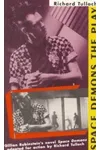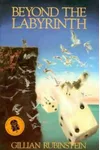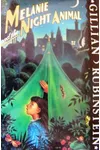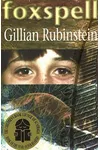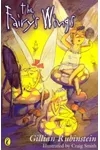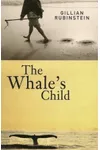Picture an Australian storyteller who whisked readers into virtual worlds and feudal Japan—meet Gillian Rubinstein! Born in England and shaped by a childhood split between continents, this award-winning author captivated young adults with her imaginative science fiction and fantasy novels. Her debut, Space Demons, sparked a career that blended reality, adventure, and heartfelt coming-of-age tales, earning her a cherished spot in Australian literature.
The Making of Gillian Rubinstein
Born on August 29, 1942, in Potten End, Hertfordshire, England, Gillian Rubinstein grew up in a world of contrasts. Her childhood toggled between English villages and Nigeria, where her parents lived during her teens. This multicultural exposure ignited her love for languages—she studied French, Spanish, and later Japanese—infusing her stories with a global perspective. After moving to Australia in 1973, her passion for storytelling bloomed, inspired by her three children and a desire to craft tales that resonated with young readers.
Rubinstein’s early career as a playwright and short-story writer set the stage for her literary breakthrough. Her voracious reading habits, sparked by her sister Jocelyn, fueled her creative process, which she described as intuitive, often letting ideas simmer during long walks before writing without rigid outlines. This free-spirited approach defined her unique voice.
Gillian Rubinstein’s Unforgettable Stories
Rubinstein’s debut novel, Space Demons (1986), revolutionized Australian young adult fiction. This gripping sci-fi tale follows Andrew and his friends, who are sucked into a mysterious video game that blurs reality and virtual danger. Praised for its emotional depth and exploration of friendship and family dysfunction, it won the CBCA Book of the Year for Older Readers in 1987 and inspired two sequels, Skymaze (1989) and Shinkei (1996).
Her versatility shone in works like Galax-Arena (1992), a chilling sci-fi story about abducted children performing in a cosmic circus, and Foxspell (1994), a fantasy blending Australian folklore with themes of identity, which also clinched a CBCA award. Writing as Lian Hearn, Rubinstein ventured into adult fiction with the bestselling Tales of the Otori series, starting with Across the Nightingale Floor (2002), set in a mythical feudal Japan. Her style—rich characters, vivid settings, and emotional stakes—made her stories timeless.
Rubinstein’s narratives often weave coming-of-age themes with speculative elements, reflecting her fascination with human relationships and cultural diversity. Her sparse use of tech jargon in Space Demons keeps it relatable decades later, while her Otori series showcases her deep respect for Japanese culture, honed through study and travel.
Why Gillian Rubinstein Matters
Gillian Rubinstein’s impact on Australian literature is profound. Her pioneering sci-fi and fantasy works introduced young readers to genres that were then underrepresented in Australia, earning her the title of a “godmother of science fiction” among fans. Her ability to tackle heavy themes—self-loathing, family strife, and identity—with compassion resonated with generations, making books like Space Demons staples in school curriculums.
As Lian Hearn, she expanded her reach globally, with the Otori series selling millions and earning Aurealis Award nominations. Her legacy lies in her fearless exploration of human emotions through fantastical lenses, inspiring readers and writers to embrace diverse stories. Her adaptations for theater, like Space Demons: The Play, further cemented her cultural footprint.
- Born: August 29, 1942, Potten End, England
- Key Works: Space Demons, Galax-Arena, Foxspell, Across the Nightingale Floor (as Lian Hearn)
- Awards: CBCA Book of the Year (1987, 1995), NSW Premier’s Award, YABBA Award
Snag Space Demons or Across the Nightingale Floor and dive into Gillian Rubinstein’s thrilling worlds of sci-fi and fantasy!


